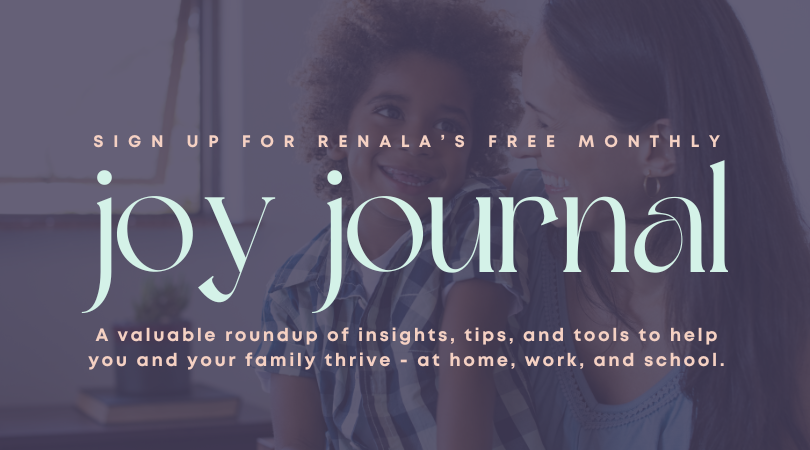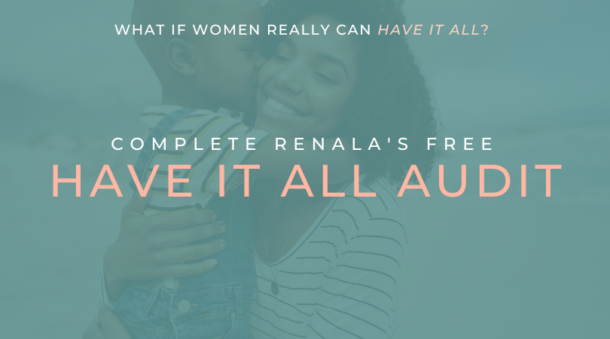In 2012, an article appeared in a summer issue of The Atlantic titled, “Why Women Still Can’t Have it All.”
At the time, I was a journalist at a sister publication under The Atlantic umbrella. My Air Force pilot husband was on constant rotation to the Middle East, and my daughter was nearly two. I vividly remember reading the article propped up on my belly, protruding from the second trimester of pregnancy with my son, thinking, “Oh, no, it’s really true. I can’t have it all.”
I didn’t want to believe it, but I did. The title of the article became a frequent sound bite in my personal narrative. To be a woman meant having to choose: you could either have a career, or you could have a family, but not both – or at least not in ways that didn’t completely burn you out.
While I tried to push up against this narrative for years, frantically balancing my work and family demands amid frequent military moves and my husband’s schedule, I hit a breaking point in 2019. I decided that if I couldn’t have it all, then I wanted nothing. I took a leave from my job at a global nonprofit, asked my husband for a divorce, and became increasingly disconnected from my two young children – and from myself.
I’ve since learned, after years of working with a coach and becoming a certified coach myself, that the way culture has defined having it all is backwards. As women, we’ve inferred that having it all is all about the number of roles you play, career levels you’ve reached, and ceilings you’ve smashed – all while balancing joyful, fulfilled, and intentional roles as a wife and mother.
In other words, culture has trained us to believe that to have it all is more about what you do or the skills or resources you possess, far more than it is about who you are.
There’s no fault in women believing that our roles, resources, and titles – and the ability to seamlessly juggle it all – are the determinants of whether we have it all or not. We’ve known no other way, having watched our own mothers navigate the same real struggle.
We let the abstract cultural definition of having it all dangle before us. And without taking the time to clearly define what it means for us – and align every aspect of our lives accordingly – we burn out. We medicate it with self care, but without more fully understanding ourselves and what we actually need, our attempts at self care merely become a band-aid that quickly falls off.
 I created Renala with a belief in a golden third way, where having it all isn’t about what you do or have, but rather, having a vision and strategy to align your life with who you are.
I created Renala with a belief in a golden third way, where having it all isn’t about what you do or have, but rather, having a vision and strategy to align your life with who you are.
Together, we work to understand who you and every member of your family uniquely are – your identity, Strengths (using CliftonStrengths 34 [adults] and Strengths Explorer [kids]), values, needs, triggers, passions, play personalities, and more – and use this as a foundation to create a powerful vision and strategy for your lives – both individually and together.
Using this holistic approach to family identity and vision makes having it all possible not only for the working mom; it becomes accessible to her spouse or partner and children as well. You unlock the possibility that you can all be going in the same direction, together, where joy is unconditional – and complete.
If it sounds too simple, it’s because the idea of it is. In practice, it’s much harder because most of us have only a surface-level understanding of who we are. Having to face the depth and beauty of who we authentically are – and actually align and transform our lives to this identity is among the hardest, bravest work we can do.
Yet by stepping into it, particularly with a coach or guide, working families can break the cycle for generations that follow, to live more healthy, full, and relational lives.
Let me be clear that, as a working mom who left corporate life earlier this year, I don’t pretend to gloss over the many societal shifts that need to happen to make the workplace more welcoming for working mothers. Women absolutely deserve more support and resources in society. But unless we also do the work of getting clear on who we are, listen to ourselves, and anchor in our own personal and family vision, any additional support we receive will still fall flat.
I also don’t pretend to have this all figured out. I still fall into old stories and mistake my identity with what I do or have from time to time. My husband and children do, too. We’re human. Fully knowing ourselves and those we love is a lifelong journey.
But that journey – when we’re brave enough to take the first step – is rich, beautiful, and worth it. You – and your family – are worth it, too.
Let’s rewrite the definition – where having it all means having all of you.
Learn powerful tools to more deeply explore who you are with Renala’s free Unlock Your Yes Workshop!



